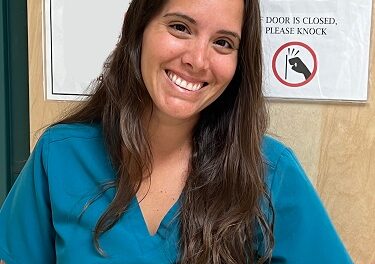More than 500,000 patients in Florida depend on medical marijuana to help them deal with conditions ranging from epilepsy to PTSD to cancer. Yet two controversial proposals—House Bill 1455 and Senate Bill 1958—are currently making their way through the legislative process, which could change the efficacy of the medications that these patients receive.
These proposals, introduced by Rep. Spencer Roach and Sen. Ray Rodrigues respectively, would place a 10 percent THC cap on smokable marijuana, and limit THC levels in all other forms of cannabis except edibles, like concentrates and powders, to 60 percent. THC, or tetrahydrocannabinol, is the main psychoactive component of marijuana. The bills also impose advertising restrictions on doctors who order cannabis for their patients.
These proposals are being roundly criticized by numerous groups ranging from physicians and patients to medical cannabis companies and advocacy groups.
“This has been a highly charged topic amongst all in the cannabis space; lower THC potency means patients would be forced to buy more, pay more, and use more product, all to achieve their current physician-recommended dosage,” said licensed medical marijuana dispensary Trulievein a prepared statement. “As these laws affect almost every single medical cannabis product, the market as it is today would not exist.”
.jpg) According to Eric Stevens, advisor, Florida for Care, the proposal’s sponsors have not proven a case for the dangers of having more THC in cannabis products. The majority of products currently being used by patients contain approximately 16 to 26 percent THC.
According to Eric Stevens, advisor, Florida for Care, the proposal’s sponsors have not proven a case for the dangers of having more THC in cannabis products. The majority of products currently being used by patients contain approximately 16 to 26 percent THC.“Their reasoning varies, but it is seemingly because they believe that some sort of additional damage is occurring because of these higher THC products,” he said. “While they’re claiming increased incidence of psychosis, when they discussed the bill on March 9, they could not come up with one episode in Florida’s 500,000 patients who have used medical marijuana in the past three years.”
This is not the first time that Republican legislators have tried to get this type of legislation passed. For the past two years, similar bills have moved through committees but died in the Senate.
“A good number of leaders who were in the House are now in the Senate, which is why they’ve brought the bill back again,” said Stevens. “When we heard that it would be coming back, we offered to provide them with information, but they have not invited one physician up to talk about what’s working or not. It’s interesting that there are no doctors speaking out in favor of this.”
Stevens adds that more than 200 doctors have signed a petition against the legislation.
The Patient Perspective
One of the main reasons that physicians, among others, are not supporting these policies is because of the negative effect that the proposals will have on patients.
“These bills place artificial caps on naturally occurring THC in cannabis and would affect nearly every medical cannabis product sold in Florida today, hurting patients instead of helping them,” said Trulieve. “We have fought these caps on behalf of patients each year it has been brought up, and we will continue to fight for patients.
“We have not seen any studies that recommend placing limits on THC potency,” the company added. “Lower potency means buying more, spending more, and even being forced to smoke or vape more, all to achieve the same doctor-recommended dosage that patients can find now.”
According to Florida Cares’ data, a 10 percent cap would result in an average price increase of between 50 percent and 150 percent for patients buying smokable flower, and THC caps would mean that patients would have to smoke between 50-150 percent more marijuana to achieve the same or similar medicinal effects.
“When you consider that a person has been using a product for multiple years that works, but now they have to find something else or use more and pay more, it’s frustrating,” said Stevens, adding that because these products aren’t covered by insurance, patients are paying out-of-pocket. “Only one or two products fall under the 10 percent THC category right now, which means that you’re asking for four years of research and development to be redone, not to mention that with that limited number of low-THC products, it’s going to be harder for dispensaries to keep it in stock.”
Having passed the Professionals & Public Health subcommittee March 9 and the Health Care
Appropriations subcommittee March 18, the proposal is now before the Health & Human Services committee, with a tentative decision scheduled for March 29. It must reach legislators in its final form before May 1 to receive a vote.
Appropriations subcommittee March 18, the proposal is now before the Health & Human Services committee, with a tentative decision scheduled for March 29. It must reach legislators in its final form before May 1 to receive a vote.
“Basically, that means that the proposals need to move through all committees by the first week of April in order to get the final version to the House and Senate,” said Stevens.
During this time, Florida for Care is continuing to push conversations about the proposals in Tallahassee in order to provide accurate, medically based information to the state’s legislators. It is also encouraging the public to sign a petition online against passage of these bills, which to date, has received more than 40,000 signatures.
“They need to understand that this is not what people want—that there are no positives to this approach,” Stevens said. “They need to stop creating the dialog that they want to hear.”


























